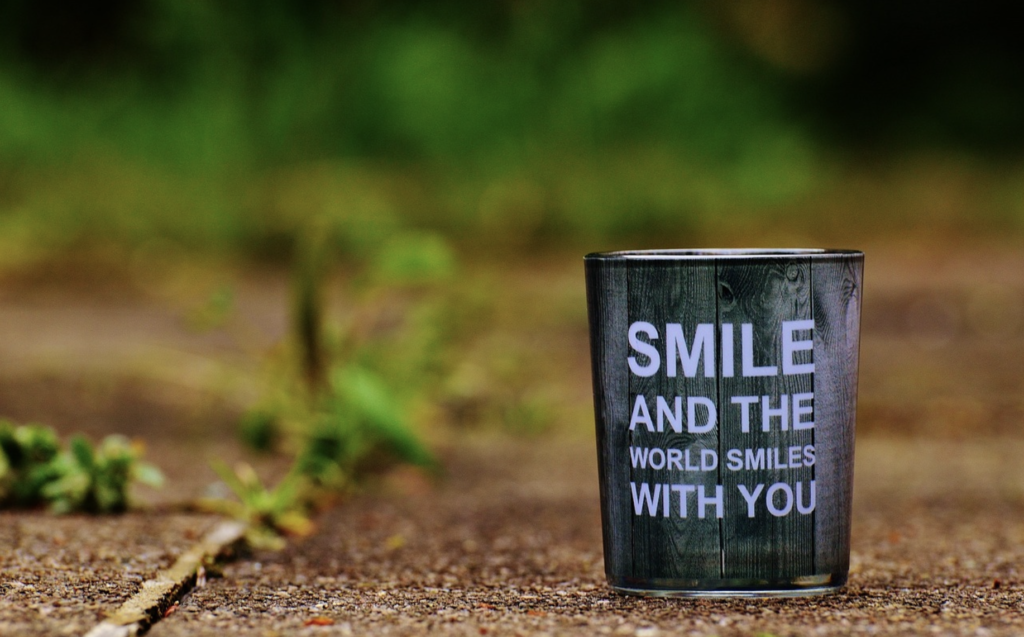
The columnist Arthur C. Brooks recently wrote in The Atlantic, “Satisfaction . . . is the greatest paradox of human life. We crave it, we believe we can get it, we glimpse it and maybe even experience it for a brief moment, and then it vanishes. But we never give up on our quest to get and hold on to it.”
Buddhists, when they hear such wisdom, often say something like, “sadhu, sadhu, sadhu,” meaning “good, good, good.” Or they simply note, “this is an eternal truth.”
The Buddha’s whole teaching is sometimes summed up in his Four Noble Truths. These are 1) life is dissatisfactoriness (a new word, but “suffering,” which is usually used, is a bit too negative), 2) the cause of our dissatisfaction is craving, 3) there can be an end to craving, and 4) the end to craving is the ennobling eightfold path.
If we can find and eliminate craving, so the theory goes, we can weed out the lack of satisfaction in our lives. This, however, is the opposite method from what we see in consumerist society. Here, we try to fill our need for satisfaction with more and more stuff or more and more experiences.
But as Brooks notes, we never quite seem to get there. Being a Baby Boomer, he of course quotes the great Rolling Stones song, “(I Can’t Get No) Satisfaction.”
We Can’t Always Get What We Want

We miss an important opportunity, however, if we don’t also quote another great Rolling Stones song, “You Can’t Always Get What You Want.”
It might seem like a simple aspect of adulthood, but how often do we still feel frustrated or hurt when we don’t get something we want? From something so simple as a pen running out of ink or a remote control not working correctly, to big things like that dream job or the ideal romantic partner, our lives are filled with things and people not doing what we want.
But if you try sometimes, you just might find, you get what you need. This is the upshot of today’s Mick Jagger wisdom. In general, unless you are living in great poverty or a war-torn country, you still get through each day getting what you need. It might not be perfect, it might take a little more time than you’d like, but you do okay. And just realizing this can be a breath of fresh air.
Renunciation
Renunciation is a key practice in the Buddhist path. For those who want to work very hard at it, there is the monastic route, in which one renounces their former, worldly life altogether. One even gives up his or her name to take on a new identity as a son or daughter of the Buddha.
But even for laypeople, the practice of renunciation can play a strong role. As we think about things that work in our life to bring happiness and things that do not, we can work on letting go of those that do not. I grew up on television and video games. It was the 80s and 90s and they were a staple of virtually every household. Then, when I got to college, I didn’t get a television. A couple years later I gave up on video games too. Not that either of these are intrinsically bad, but I could see that for me, they were taking up a lot of time. And I needed that time to focus on studies if I was going to succeed in school.
There were times in my 20s when I experimented with giving up on alcohol, another time and energy waste, as well as relationships. For some time, I thought I might become a monastic to pursue meditation and Buddhist philosophy full-time. But then I saw that even that path had its limitations and that a more moderated path as a scholar with a supportive wife and occasional glass of wine or scotch could work out just fine for me. Renunciation needn’t be an all-or-nothing proposition.
Just Let Go

As one ages, one does need to let some things go. The idea of becoming a monastic was one of those things for me. A whole list of other “wants” have risen and passed since then as well. And by letting them go and pursuing what I have, my life has turned out great so far.
Each step of the way, new growth has required a new “letting go.” We never know what new opportunities might arise around the next corner. But if we are unwilling to go there, we will never find out.
While I didn’t become a full monastic, the life of a graduate student is remarkably similar. I lived much of my 20s in crammed graduate student housing with very little spending money, but also very few needs. I walked everywhere, ate simple foods, often communally with people from all over the world, and feasted on the wisdom of great books and brilliant scholars.
When opportunities did arise for me, there was little to hold me back. I traveled widely, lived in India twice, and wound up, for a while, with a teaching job in Hong Kong. Then, too, I had to let that go in order to get back to my favorite city in my home state (Missoula, Montana). This is life, living fully in this moment, ready to let go for whatever moment presents itself next.
 Justin Whitaker, Ph.D., holds a doctorate in Buddhist ethics from the University of London. He has given lectures, and taught Buddhist studies and Philosophy at Oxford University, the University of Hong Kong, the University of Montana, and at Antioch University’s intensive study-abroad program in India. A certified meditation teacher, he is a regular contributor to Patheos.com, and Senior Correspondent for Buddhistdoor Global. He lives in Missoula with his family.
Justin Whitaker, Ph.D., holds a doctorate in Buddhist ethics from the University of London. He has given lectures, and taught Buddhist studies and Philosophy at Oxford University, the University of Hong Kong, the University of Montana, and at Antioch University’s intensive study-abroad program in India. A certified meditation teacher, he is a regular contributor to Patheos.com, and Senior Correspondent for Buddhistdoor Global. He lives in Missoula with his family.
